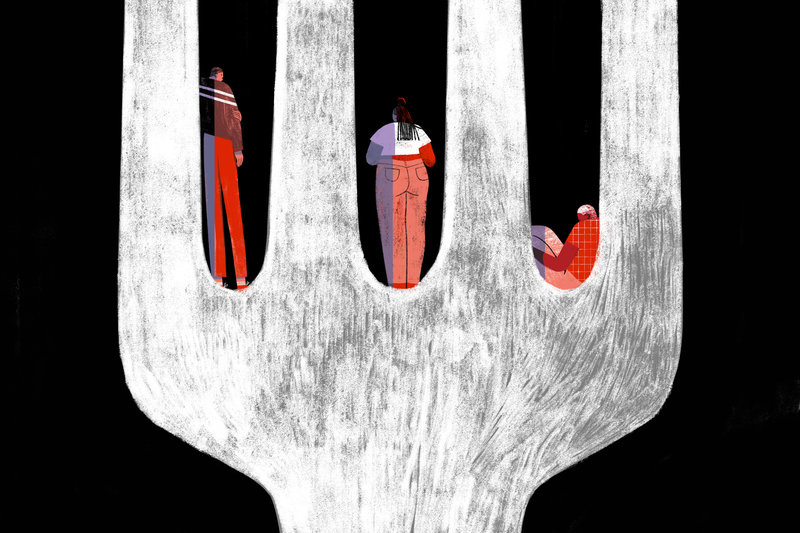Last time we talked about ‘Body Image’ which represent the general way in which each of us look at ourselves.
Now we are gonna go a bit more in to details talking about ‘Eating Disorders’.
We talk about eating disorder when someone revolves their life around food and it is not able to live a normal life. People with this issue show an abnormal attitude towards food changing their habits and behaviour. Usually, all they can see is their body shape and this leads them to make unhealthy choices about food, damaging their mental and physical health.
Three types of eating disorder:
- Anorexia nervosa;
- Bulimia nervosa;
- Binge-eating disorder.
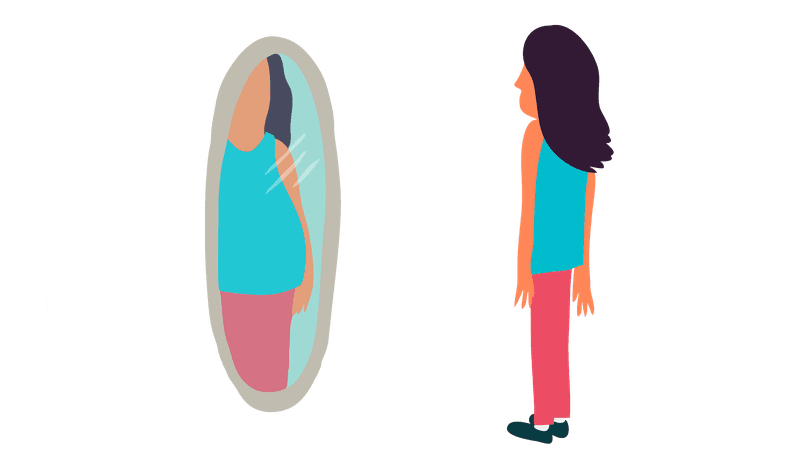
Anorexia nervosa
People with anorexia nervosa see themselves as overweight even when they are clearly underweight. They tend to weigh themselves repeatedly and control their way of eating usually having small quantities of only certain foods. Some can also end in binge-eating, extreme dieting, excessive exercise, self-induction vomiting and uses of laxative and diuretics.
Characteristics of anorexia nervosa:
- Extreme thinness;
- Uncontrolled fear of gaining weight;
- Distorted body image;
- Self-esteem heavily influenced by the perception of body weight and shape;
- Lack of menstruation in females.
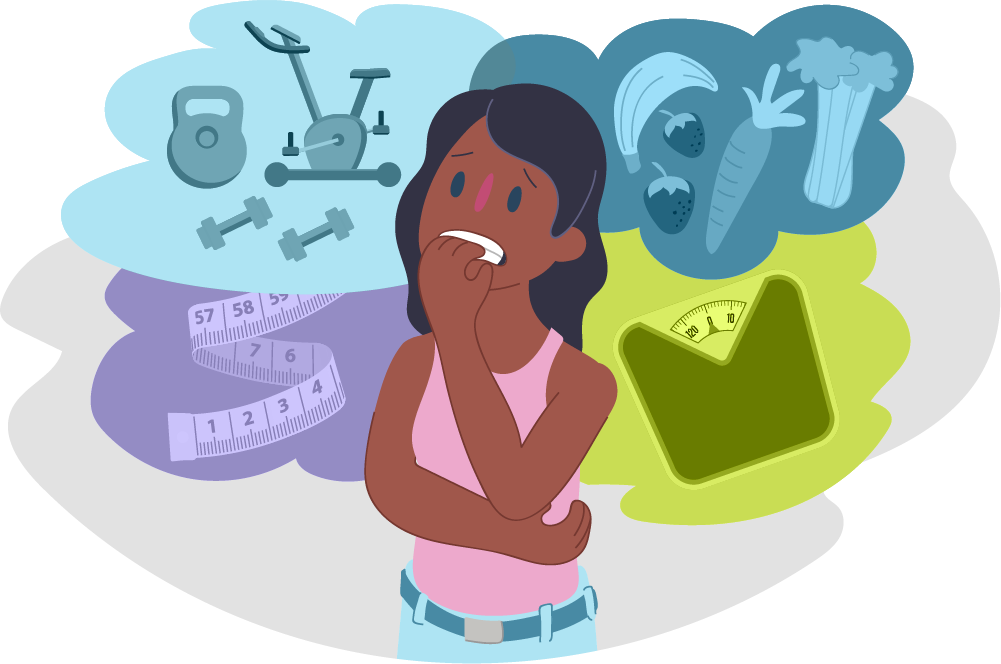
Bulimia nervosa
Unlike those suffering from anorexia nervosa, people with bulimia nervosa usually maintain a healthy or normal weight even if someone is overweight. They still have something in common though. Also, people suffering from bulimia nervosa are constantly worried about their body weight and shape fearing gaining weight.
This issue usually starts in the mid-teens but may be hidden until mid-twenties as it is often accompanied by a feeling of disgust or shame.
Characteristics of bulimia nervosa:
- Forced vomiting;
- Fear of gaining weight;
- Fasting;
- Excessive use of laxative and diuretics;
- Excessive exercise.
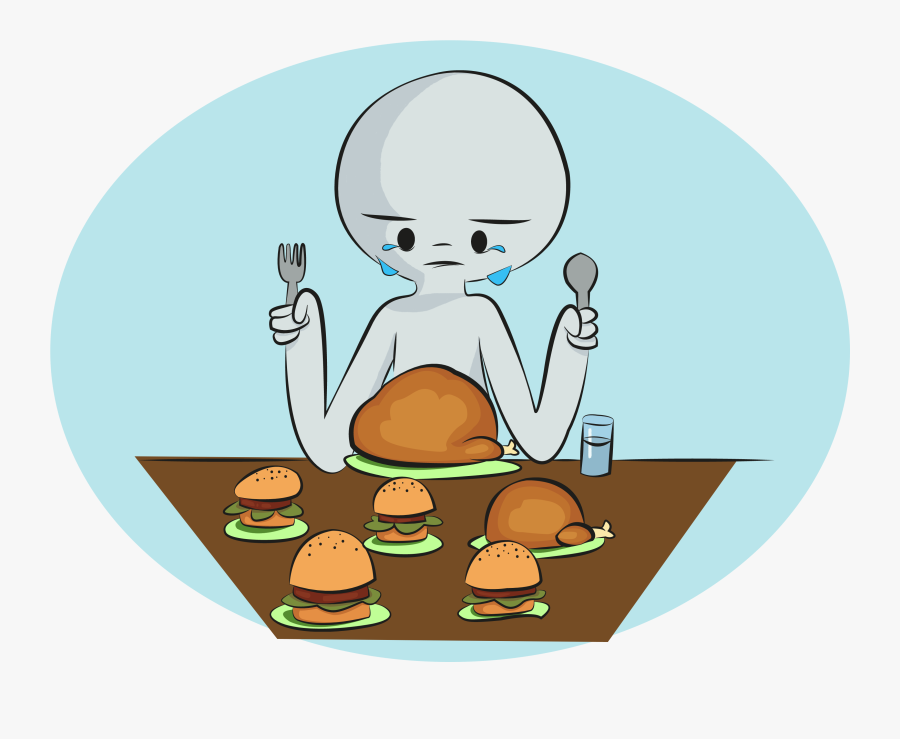
Binge-eating Disorder
Binge-eating disorder brings a person to lose control over their eating and people with this issue are usually obese or overweight.
During bingeing, a larger than a normal amount of food is consumed in a short time frame and the person with this behaviour feels anxious and lack of control over their eating.
Characteristics of binge-eating disorder:
- Episodes of excessive overeating;
- Higher risk of developing cardiovascular disease and high blood pressure;
- Feeling of guilt and shame about their behaviour that can lead to more binge-eating.
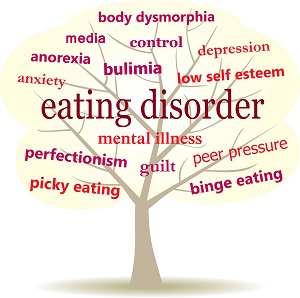
The causes of Eating disorders
We cannot say for sure what causes an eating disorder. However, they can be caused by many risk factors such as psychological, environmental and biological.
Psychological risk factors include a number of personality traits that during the adolescence may intensify due to hormonal changes caused by puberty. These traits include:
- A tendency towards depression and anxiety;
- Excessive working and feeling scared about the future;
- Perfectionism;
- Inhibition;
- Obsessive thought and compulsion to do certain things.
Environmental risk factors include:
- Stressful life that can include problems related to school, job, relationship,…;
- The loss of someone important;
- Family issues;
- Child abuses.
Biological risk factors:
- Malnutrition can change the balance of hormones in the body which can affect the brain functions.
- A person’s sense of appetite become disrupted. Usually when a person finishes the meal should feel satisfied thanks to the release of chemicals in the brain that reward you for eating. When someone suffers from eating disorder this function could be disrupted and instead of feeling satisfied, there is a sense of anxiety and guilt.
Eating disorders can have a significant impact on people’s life including the person suffering from it and people around them. For this reason, help should be asked.
There are different approaches to recover from an eating disorder such as psychological treatment, medical intervention and medication.
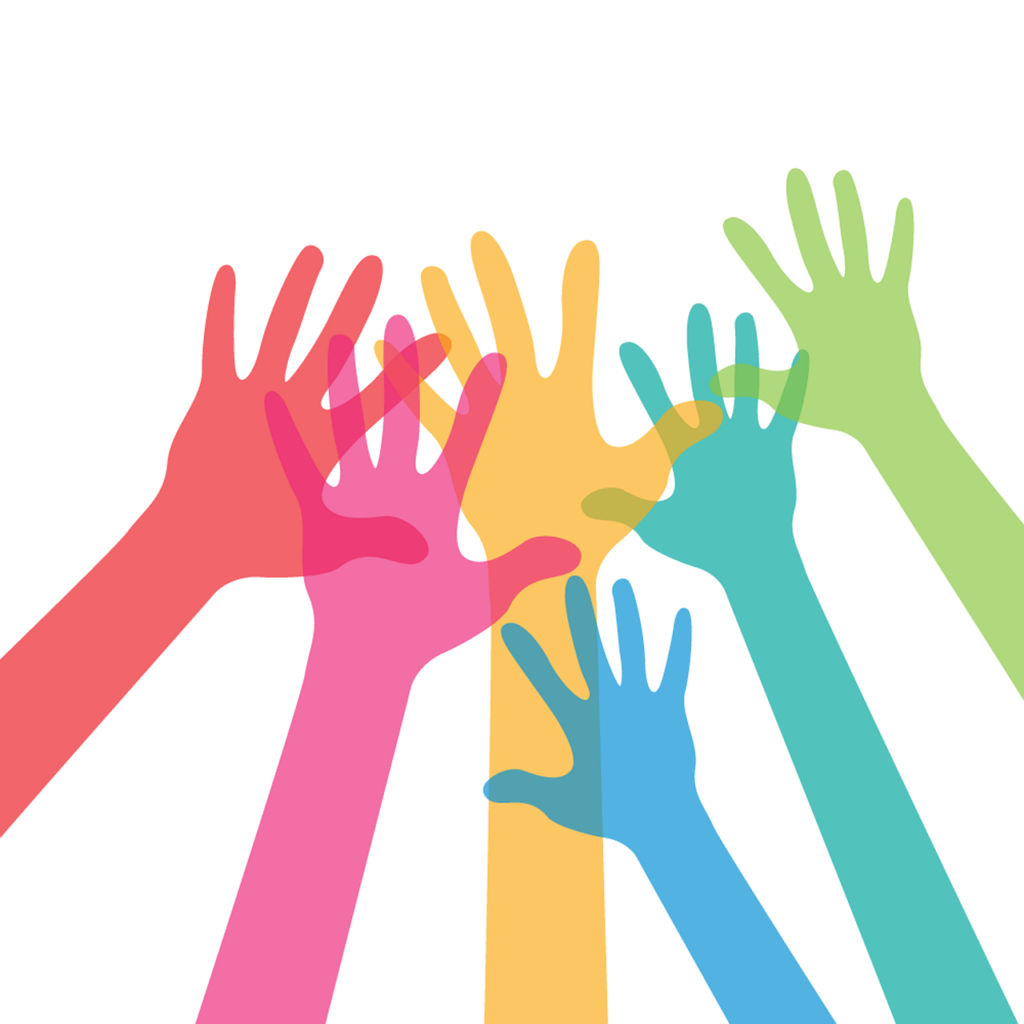
If you know someone who seems to have an eating disorder you can always help them in different ways. The first step to recover from an eating disorder is to acknowledge to have it.
Here few things that you can do to encourage people with eating disorder:
- To build a support network so they can talk to someone in case they need to;
- To follow a healthy diet which means low in saturated fats, full in oily fish, fruits and vegetables and drink lots of water;
- To look for new exciting activities to do to stop focusing just on food;
- To express feelings and emotions in healthy ways such as through arts (writing, music, drawing, exercising,…;
- To not be too hard on themselves as everyone makes mistakes and has bad days.
This is my suggestion coming from my heart and personal experiences. The most important thing is that it is okay to ask for help and express feelings; no one should judge you for this and if they do just remember that there is nothing wrong with you, but maybe they have some issues too. Be around people who love you and who are ready to listen to you and give you love, support and healthy advices. And if you think that for any reason you are not able to do it by yourself is okay to ask for help. Therapies is a great way of receiving help and it is an amazing journey. It may take some time to sort out things, but it’s all worth it.
I hope you find this post useful for yourself and for helping people around you.
Have a great day.
Sheerine x

